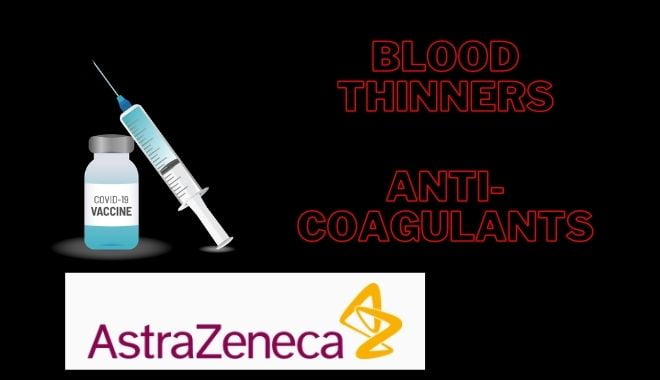AstraZeneca Vaccine: Clots, Blood Thinners & All The Concerns Explained

London: The World Health Organization (WHO) on Friday jumped to AstraZeneca’s defence saying there is no reason to stop using the vaccine. Earlier, Denmark, followed by ten other European nations, temporarily suspended the use of Oxford-AstraZeneca COVID-19 vaccine over blood clot fears.
Why The Suspension?
Denmark, Iceland and Norway have paused the vaccine after reporting 30 cases of blood clots following which it decided to pause the vaccine. However, more than 5 million people in the EU and 11 million in the UK have taken the jab. Experts point out that this is not a cause of concern and there is no higher blood clot risk with the vaccine.
Germany and France, who have just recently approved the vaccine for people over 65, rejected the claim saying the benefit outweighs the risks.
Canada, too, has not paused the rollout and stands by the vaccine saying there is nothing to be concerned about as of now.
“AstraZeneca is an excellent vaccine, as are the other vaccines that are being used,” WHO spokeswoman Margaret Harris told reporters in Geneva. “Yes, we should continue using the AstraZeneca vaccine,” she added.
Different Batches?
Italy, Bulgaria and few EU nations have paused certain batches of the AstraZeneca vaccine and are investigating the lot.
What About Covishield & Those On Blood Thinners?
Covishield is the same Oxford-AstraZeneca vaccine that is manufactured here by the Serum Institute of India and is one of the two COVID-19 vaccines being administered in the country. Around 1.5 crore people have taken the Covishield jab.
There was an issue with blood thinners in India with the ICMR finally ruling that there was nothing to worry about and such patients can consult a doctor before taking the vaccine.
Fortis cardiologist Dr Pramod Kumar told Quint that the issue with Europe and India are different. Those on thinners or anticoagulation can get an INR (International Normalised Ratio) or PT (Prothrombin Time). “The ICMR has said that those within a therapeutic range of anticoagulation and those on antiplatelets do not have to worry,” says Dr Kumar.
People with venous thrombosis, atrial fibrillation or mechanical heart valves are usually prescribed anticoagulants such as heparin, warfarin, acenocoumarol, rivaroxaban, dabigatran, enoxaparin, apixaban, edoxaban and fondaparinux.
ICMR chief Balram Bhargava also explained: “The second category is anticoagulants like heparan, and these patients have a tendency to bleed much higher. The only worry is, there can be local hematoma or swelling that can occur where the injection site is. Therefore, it is a very relative contraindication. The anticoagulants can be stopped for one or two days before giving the vaccine.”
Those below the upper level of the therapeutic range should take the vaccine with a fine gauge needle (23 or 25 gauge) and firm pressure should be applied to the injection site for two minutes.
There are no prescribed precautions for those on anti-platelet drugs (aspirin, clopidogrel, dipyridamole, ticlopidine, prasugrel and eptifibatide). However, experts have pointed out that the risk of bleeding is less for these drugs but still a fine needle and longer compression can be done.
Dr Kumar also pointed out that if you are above the recommended range and you take the COVID vaccine, you may experience bleeding in your muscles.
Also Read: Severe Allergy Added To AstraZeneca’s Side Effects As More Nations Pause The Vaccine

Comments are closed.